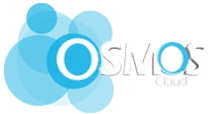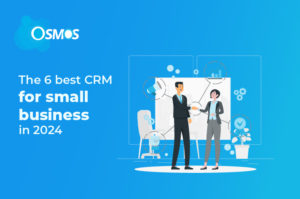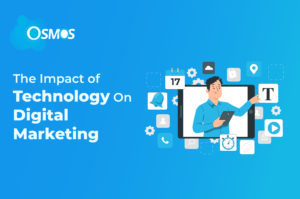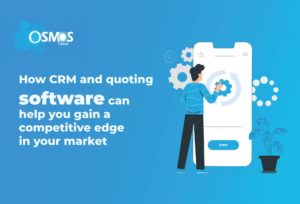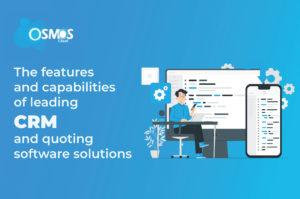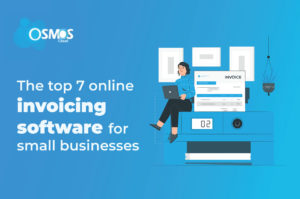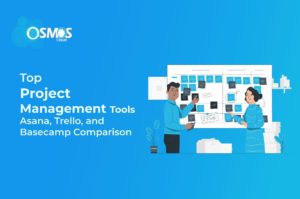As the market becomes customer-centric, the demand for CRM is expanding significantly. CRM software is best known for improving customer experience and executing automation in a business. Every business tries to make the best out of the data about customers and prospects. And the CRM helps them achieve this goal by using the data to drive more revenue, sales, and profit into the business.
In general, all CRMs do the same thing; keeping customers on track and enabling the business to be customer-centric. However, not every CRM system works the same way. These systems have a variety of differences that sets them apart.
Let’s look at four different types of CRMs and assess how they can fit in your business.
1) Operational CRMs
An operational CRM mainly focuses on improving the customer support department of a business. The system is designed to facilitate activities related to improving customer experience. The prime focus is on sales and marketing along with customer services.
Businesses use these CRM systems to streamline the process for customer relationships. Operational CRMs are the most common variety which assists companies in generating leads and converting them into customers and contacts.
Features of Operational CRM
- Sales automation: Implementing an operational CRM in the sales department will help streamline the sales process. The system is designed to simplify the sales process while saving time for the staff. It allows the sales team to focus on direct communication with the customers and solidify loyalty. The CRM system helps set meeting schedules, record and organize sales, and schedule emails.
- Customer service automation: Customer service is considered one of the most integral aspects of many businesses. Operational CRM helps automate the process of reaching out to customers, enhancing their experience, and communicating with them. The software also offers helpful tools, including live chat, automated response, and referring customers to blogs and FAQs. It also offers live chatbots, which are popular with many businesses nowadays.
- Marketing automation: Operational CRM automates mundane tasks such as calling contacts and managing emails campaigns. Moreover, automated marketing ensures effective planning with the help of correct data. Teams can also evaluate the marketing campaign results using an operational CRM.
Benefits of Operational CRM
An operational CRM provides extensive benefits to its https://www.osmoscloud.com/blog/wp-content/uploads/2022/09/header-cover-1.jpgs, which include:
- Effective management of projects and campaigns
- Tracking and storing relevant customer data for further use
- Sales optimization and lead nurturing to make more sales
- Enabling a business to adopt a customer-centric approach which results in better customer retention
Best For
The CRM is an optimum choice for medium and large enterprises. The systems can help three core departments; sales, marketing, and customer services. The software may prove to be helpful for any firm looking to automate its workflows.
2) Analytical CRM
An analytical CRM system focuses on gathering data and identifying patterns to help the company better serve its customers. The data includes customer preferences, feedback, behavior, and contact information. These patterns help businesses understand the impact of their product and services on consumers.
Moreover, companies leverage the data to tailor marketing campaigns and enhance customer support. The in-depth analytics provide further help for businesses to meet their goals.
Features of Analytical CRM
- Data Warehousing: It is a database found in many analytical CRMs to make customer data analysis easier and more effective. It pools historic and current data into one place and makes data extraction and analyses seamless, unlike conventional databases.
- OLAP Tools: OLAP is short for Online Analytical Processing. This tool helps in analyzing complex data in the database. It possesses plenty of abilities including, statical analysis, infinite reporting, and in-depth insights.
- Data Mining: Analytical CRM systems use data mining to determine trends and track information relevant to customers. It allows the company to see a bigger picture of the customer lifecycle, which includes customer identity, attraction, retention, and development.
- Customer Segmentation: An analytical CRM provides insights that reveal customers’ characteristics. Using the insights, a business can group customers into segments to tailor a targeted approach. Segmentation also assists in identifying the best group of customers to sell a new product and planning a new targeted marketing campaign. The overall gain for the businesses is that it allows them to invest resources in profitable customers.
Benefits of an Analytical CRM
The CRM can bring many positives to a business which include:
- Enhancing organization decisions for future campaigns
- It makes advertisement and marketing campaigns more effective
- Substantially boosts customer retention and strengthens customer loyalty.
- Help businesses create a targeted approach for potential customers.
- Identifies strengths and weaknesses of the business
Best For
An analytical CRM fits businesses of any size looking to leverage data to gain insights into customer behavior. These systems require an analyst well-versed in technical stuff since comprehending data might be complex and time-consuming.
3) Collaborative CRM
Collaborative CRM systems help the company reach its needs and objectives across all departments. It brings together sales, marketing, and customer service data to improve coordination within the business. The system centralizes all the data and automates the tasks to simplify the workflow.
These systems emphasize improving the information flow across the business departments. It allows managers and supervisors to interact and share their ideas with employees and superiors. It leads to more transparency among organizational teams since everyone will be on the same page.
Features of a Collaborative CRM
A few features of collaborative CRMs are:
- Interaction Management: The system ensures to track every interaction of a customer or a prospect. It helps record all the essential parts of a customer’s journey through the sales funnel. This feature enables a business to make improvements and segment the contracts.
- Document Management: Some of the collaborative CRMs help companies store important documents accessible at any time. Staff can easily use these documents to solve customers.
- Channel Management: Customers nowadays expect brands to be available across multiple channels. And collaborative CRM ensures that customers have the choice to communicate through any channel including, texts, calls, email, and social media applications. However, you need to make sure that you are active on these platforms.
Benefits of Collaborative CRM:
As the name suggests, collaborative CRM collects and shares the data with all the teams in an organization. Let’s take a look at other benefits:
- Improves communication across all departments
- Better customer experience with multichannel support
- Gathers and shows customer information in a comprehensive way
Best For:
Collaborative CRM can be an intelligent choice for a large organization with a huge customer base. Moreover, small and medium-size businesses looking to improve collaboration can also benefit from it.
Strategic CRM
Strategic CRMs focus on customers and work to their relationship with the business. It puts customers first and aims to provide them with an excellent experience. Not only do these CRMs give the business insights, but come up with a better value proposition for clients as well.
It collects the data and insights about customers and market trends to enhance how a business interacts with a customer. In essence, the work of a strategic CRM is to improve communication and exceed customers’ expectations. It helps in establishing a long-term relationship with them.
Features of Strategic CRM
- Business Analysis: The feature helps include surveys and questionnaires that reveal the customer perceptions about the brand. The data is used to craft future strategies for the business.
- Project Management: Strategic CRMs offer 360-degree project management, which helps make an impactful project team. Each project has a skilled and devoted member who is a key decision-maker in the process.
- Cross-department Collaboration: Every department should be on the same page when working on a project. Strategic CRMs ensure awareness across all departments with this feature.
Benefits of Strategic CRM
- Significantly improves customer experience through effective marketing
- Gives insightful customer analytics
- Provides a big picture of how customers interact with the business
- Solves customer quarries swiftly with built-in tools
Best For
Strategic CRM is optimum for any business of any size. Especially for business owners looking for more than just front-line sales. It can also be helpful for managers who need strategic management of long-term customers.
Final Thoughts
The post has discussed the most popular CRMs that businesses use nowadays. CRM software is essential in today’s world, where every business aims to provide the best customer experience. There is no better way to manage and use customer data than through a CRM.
There are numerous options available in the market, but not all will fit your business needs. Therefore, it is essential to know which systems will be good for your business. The best CRM will give the company the power to understand customers better. This aspect enables your team to improve customers’ experience by providing exceptional support.
The majority of CRM software companies provide a free trial to consumers. Which helps you test its features and determine whether the CRM is a good option for your company or not. No matter how brilliant a CRM looks on the outside, it is essential to try it out once. It will save you from the hassle and give you peace of mind.
